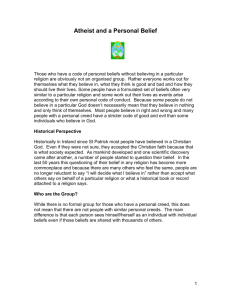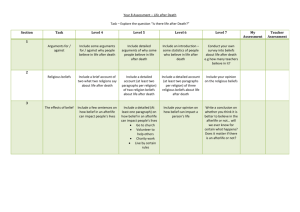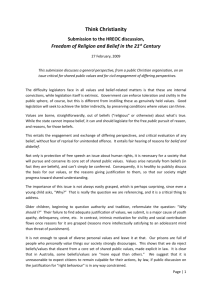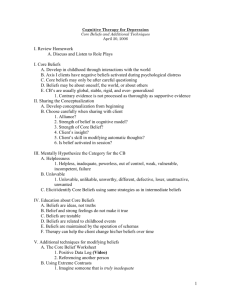Permission to Practice The right to religious freedom is essential in a
advertisement
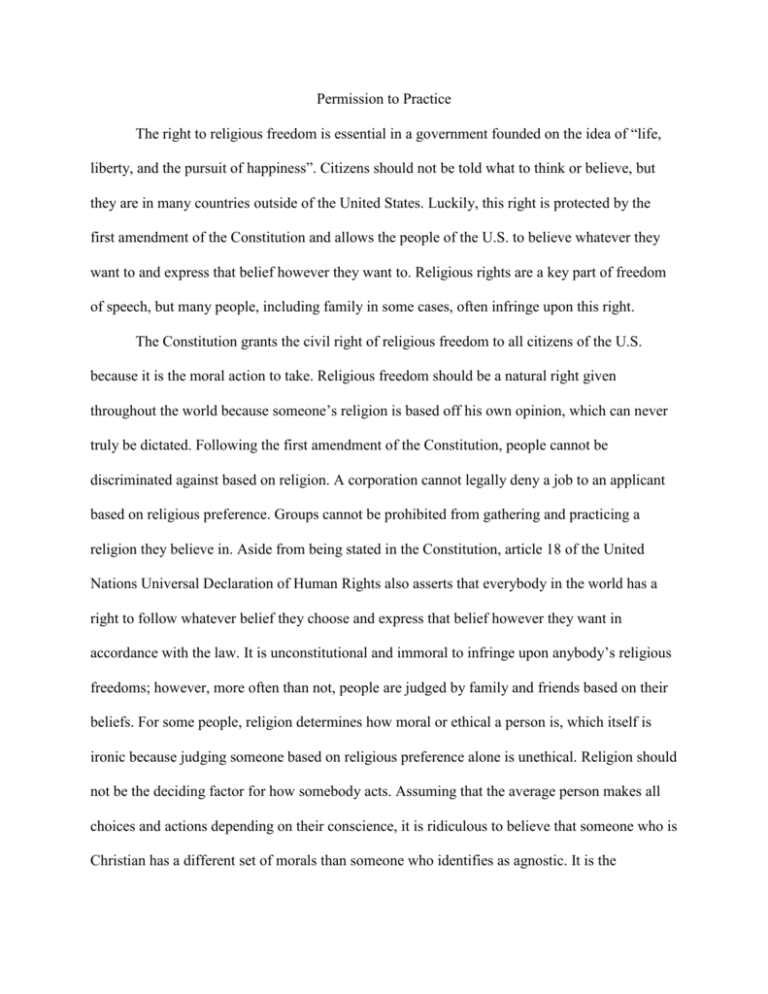
Permission to Practice The right to religious freedom is essential in a government founded on the idea of “life, liberty, and the pursuit of happiness”. Citizens should not be told what to think or believe, but they are in many countries outside of the United States. Luckily, this right is protected by the first amendment of the Constitution and allows the people of the U.S. to believe whatever they want to and express that belief however they want to. Religious rights are a key part of freedom of speech, but many people, including family in some cases, often infringe upon this right. The Constitution grants the civil right of religious freedom to all citizens of the U.S. because it is the moral action to take. Religious freedom should be a natural right given throughout the world because someone’s religion is based off his own opinion, which can never truly be dictated. Following the first amendment of the Constitution, people cannot be discriminated against based on religion. A corporation cannot legally deny a job to an applicant based on religious preference. Groups cannot be prohibited from gathering and practicing a religion they believe in. Aside from being stated in the Constitution, article 18 of the United Nations Universal Declaration of Human Rights also asserts that everybody in the world has a right to follow whatever belief they choose and express that belief however they want in accordance with the law. It is unconstitutional and immoral to infringe upon anybody’s religious freedoms; however, more often than not, people are judged by family and friends based on their beliefs. For some people, religion determines how moral or ethical a person is, which itself is ironic because judging someone based on religious preference alone is unethical. Religion should not be the deciding factor for how somebody acts. Assuming that the average person makes all choices and actions depending on their conscience, it is ridiculous to believe that someone who is Christian has a different set of morals than someone who identifies as agnostic. It is the unfortunate truth, however, that certain people think this way, which is why it is important for religions being discriminated against to fight for their right. The duty and responsibility of supporting religious rights falls on the individuals of a specific religion to back their beliefs one hundred percent. Groups of people who all follow the same belief must band together to express both their beliefs and their desire for these beliefs to be respected. The only action others and I can take to support our right to religious freedom is to stand up for our beliefs and opinions, but also respect those beliefs of other people. Others have a right to religious privacy as well and should be allowed to believe what they want without the need to publicly identify with a particular religion. If there ever does come a time in the future where my religious freedom is infringed upon by the government, I do also have the right to assemble peacefully with others with the same mindset to protest the unconstitutional action. Hopefully the current laws in place will protect everyone’s religious freedom well enough that such a measure will never have to be taken. Everybody in the United States has the right to religious freedom and can safely be confident in their beliefs without shame. The need for religious freedom was a part of the founding fathers’ need for independence from a restrictive government. It is a right that cannot be taken away as an essential part of American life. Nobody and nothing in the country can restrain someone from having an opinion or even forming a church full of likeminded believers. Anybody can believe what they want, express what they believe, and should be able to do so under the Constitution, without anyone else’s permission to practice.




